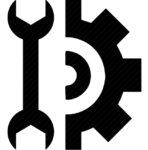MeTA
MeTA: ModErn Text Analysis
Developed by: ChengXiang Zhai et al. University of Illinois at Urbana -Champaign
License:
Web page : Tool homepage
Tool type : Multi purpose
The last edition of this page was on: 2016/11/18
The Completion level of this page is : Low
The last edition of this page was on: 2016/11/18 The Completion level of this page is : Low
SHORT DESCRIPTION
Features:
- text tokenization, including deep semantic features like parse trees
- inverted and forward indexes with compression and various caching strategies
- a collection of ranking functions for searching the indexes
- topic models
- classification algorithms
- graph algorithms
- language models
- CRF implementation (POS-tagging, shallow parsing)
- wrappers for liblinear and libsvm (including libsvm dataset parsers)
- UTF8 support for analysis on various languages
- multithreaded algorithms
TOOL CHARACTERISTICS
Usability
Tool orientation
Data mining type
Manipulation type
IMPORT FORMAT :
EXPORT FORMAT :
| Tool objective(s) in the field of Learning Sciences | |
|
☑ Analysis & Visualisation of data |
☑ Providing feedback for supporting instructors: |
Tool can perform:
- Data extraction of type:
- Transformation of type:
- Data analysis of type: Data mining methods and algorithms
- Data visualisation of type: (These visualisations can be interactive and updated in "real time")
ABOUT USERS
Tool is suitable for:
Required skills:
STATISTICS: N/A
PROGRAMMING: N/A
SYSTEM ADMINISTRATION: N/A
DATA MINING MODELS: N/A
FREE TEXT
| Tool version : MeTA: ModErn Text Analysis (blank line) Developed by : ChengXiang Zhai et al. University of Illinois at Urbana -Champaign | 
|
Contents
SHORT DESCRIPTION
Features:
- text tokenization, including deep semantic features like parse trees
- inverted and forward indexes with compression and various caching strategies
- a collection of ranking functions for searching the indexes
- topic models
- classification algorithms
- graph algorithms
- language models
- CRF implementation (POS-tagging, shallow parsing)
- wrappers for liblinear and libsvm (including libsvm dataset parsers)
- UTF8 support for analysis on various languages
- multithreaded algorithms
TOOL CHARACTERISTICS
| Tool orientation | Data mining type | Usability |
|---|---|---|
| This tool is designed for general purpose analysis. | This tool is designed for Text mining. | Authors of this page consider that this tool is somewhat difficult to use. |
| Data import format | Data export format |
|---|---|
| . | . |
| Tool objective(s) in the field of Learning Sciences | |
|
☑ Analysis & Visualisation of data |
☑ Providing feedback for supporting instructors: |
Can perform data extraction of type:
Can perform data transformation of type:
Can perform data analysis of type:
Data mining methods and algorithms
Can perform data visualisation of type:
(These visualisations can be interactive and updated in "real time")
ABOUT USER
| Tool is suitable for: | ||||
| Students/Learners/Consumers:☑ | Teachers/Tutors/Managers:☑ | Researchers:☑ | Organisations/Institutions/Firms:☑ | Others:☑ |
| Required skills: | |||
| Statistics: | Programming: | System administration: | Data mining models: |
OTHER TOOL INFORMATION

|
| MeTA: ModErn Text Analysis |
| ChengXiang Zhai et al. University of Illinois at Urbana -Champaign |
| https://meta-toolkit.org/ |
Features:
|
| General analysis |
| Students/Learners/Consumers, Developers/Designers, Researchers |
| N/A |
| N/A |
| N/A |
| N/A |
| Multi purpose |
| Text mining |
| Data extraction, Data analysis, Data visualisation |
| Data mining methods and algorithms |
| somewhat difficult to use |
| Low |
Quote from MeTA: ModErn Text Analysis (november, 2016) Recent years have seen a dramatic growth of natural language text data, including web pages, news articles, scientific literature, emails, enterprise documents, and social media such as blog articles, forum posts, product reviews, and tweets. This has led to an increasing demand for powerful software tools to help people manage and analyze vast amount of text data effectively and efficiently. Unlike data generated by a computer system or sensors, text data are usually generated directly by humans for humans.
This has two consequences. First, since text data are generated by people, they are especially valuable for discovering knowledge about human opinions and preferences, in addition to many other kinds of knowledge that we encode in text. Second, since text is written for consumption by humans, humans play a critical role in any text data application system, and a text management and analysis system must involve them in the loop of text analysis.
Existing toolkits supporting text management and analysis tend to fall into two categories. The first is search engine toolkits, which are especially suitable for building a search engine application, but tend to have limited support for text analysis/mining functions. Examples include Lucene, Terrier, and Indri/Lemur. The second is text mining or general data mining and machine learning toolkits, which tend to selectively support some text analysis functions, but generally do not support search capability.
However, seamless integration of search engine capabilities with various text analysis functions is necessary due to two reasons. First, while the raw data may be large for any particular problem, it is often a relatively small subset of the data that are relevant, and a search engine is an essential tool for quickly discovering a small subset of relevant text data in a large text collection. Second, search engines are needed to help analysts interpret any patterns discovered in the data by allowing them to examine the relevant original text data to make sense of any discovered pattern. A main design philosophy of MeTA, which also differentiates MeTA from all the existing toolkits, is its emphasis on the tight integration of search capabilities (indeed, text access capabilities in general) with text analysis functions, enabling it to provide full support for building a powerful text analysis application.
Another design philosophy of MeTA is to facilitate education and research experiments with various algorithms. In this direction, it is similar to Indri/Lemur in its emphasis on modularity and extensibility achieved through object-oriented design. It enables flexible configuration of a selected subset of modules so as to make it easy for designing course assignments or experimenting with a few selected algorithms as needed in focused research projects. For example, it has been successfully used in a MOOC on Text Retrieval and Search Engines where over one thousand Coursera learners have used the toolkit to finish a large programming assignment. It will be used again for supporting programming assignments for another upcoming MOOC on Text Mining and Analytics.
Bibliography
Massung, S., Geigle, C., & Zhai, C. (2016). META: A Unified Toolkit for Text Retrieval and Analysis. ACL 2016, 91.https://www.aclweb.org/anthology/P/P16/P16-4.pdf#page=103
ChengXiang Zhai (2011). Beyond Search: Statistical Topic Models for Text Analysis (slides. https://meta-toolkit.org/sigir-keynote-zhai.pdf
